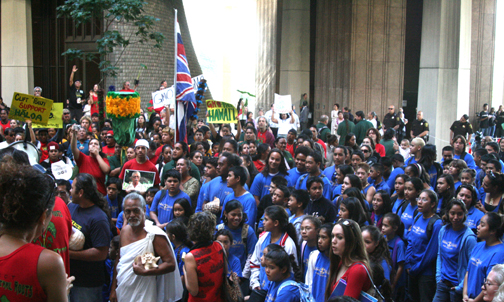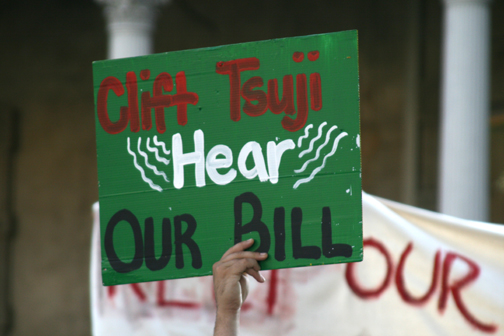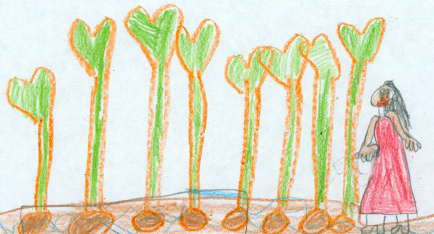planting and empowering
From Bryna + Marti:
At the start of the 2008 legislative session, more than 500 people joined Na Kahu o Haloa and Hawai’i's traditional farmers at a three-day camp across from the State Capitol, on the grounds of ‘Iolani Palace. There they gathered to learn and educate others about taro, the traditional food and ancestor of the Hawaiian people–HALOA the KALO–and call for an end to genetic modification and patenting of this Hawaiian resource. (*note: for non-speakers, taro is the english word for kalo.)
This year, traditional farmers from all over the islands are calling upon the Hawaii state government to enact a law that would place a 10-year moratorium on the genetic modification and patenting of kalo (taro).
Genetically modified kalo can cross-pollinate with native kalo varieties and the unknown longterm and potentially dangerous effects to the species, our environment and our local agriculture business can be irreversibly permanent. There is no complete research to understand what long term threats to human health may come from eating genetically modified kalo. Genetic modification is an imprecise and short-sighted attempt at a solution to stresses that Hawaiian kalo agriculture faces when clean abundant water is no longer made available to farms. Hawaiians have been successfully breeding and farming many varieties of kalo for thousands of years- time & experience have proven that species diversity & access to clean water is what is needed for a sustainable agriculture industry that can feed our islands.
Genetically modifying and patenting kalo is also culturally inappropriate because kalo is both a fundamental and sacred food source to Hawaiians, who understand that their shared ancestry began with Haloa the Kalo. Haloa the Kalo was the first kalo plant born from the ancient gods and became food for his younger brother, Haloa the Human- child of the same gods and the first human ancestor of Hawaiians. Haloa the Human was given the kuleana (responsibility) to take care of his older brother, Haloa the Kalo, who would in turn provide food for all humans. It must be understood: Kalo is not only a staple food source for people in Hawai’i, Kalo is also a member of our family, Kalo is our Kupuna!
Since those amazing three-days in January, I have had the privilege to work with amazing farmers and community members from all around the islands. I have collected and read hundreds of letters of testimony in support of protecting kalo (taro) in Hawaii. Each time I read the words being offered, I have to take a moment for appreciate their makana for Haloa. It has been so heartwarming to see so many coming forward with such labors of pure love.
Despite heavy pressure from the USA, Genetically Modified food is widely rejected in Japan & Europe. Many areas have made GMOs illegal, as they have come to understand the environmental & economic threats that GMOs pose to traditional foods & agricultural sustainability, as well as human health. Hawai’i can be a world leader–embracing appropriate agricultural research & pono policy that sustains healthy islands, culture, as well as productive participation in the international agricultural community.
(Photo Credits: Photo 1 – Trevor Atkins, Photo 2 – Trevor Atkins, Photo 3 – drawing by Mackenzie (2nd grade)).








